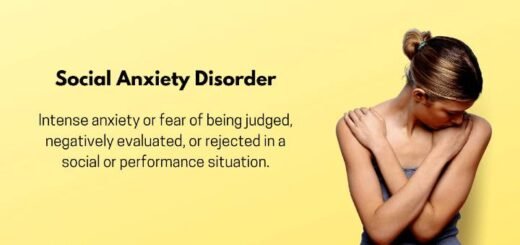Impact of Parental Social Phobia on Parenting and Kids
Parental social phobia significantly impacts parenting styles and child development, creating a ripple effect that extends into family dynamics and relationships. In families where a parent struggles with social anxiety, interactions can become strained, leading to challenges in nurturing secure attachments and fostering emotional resilience in children. Understanding the nuances of this issue is vital, especially in a context like Social Anxiety New Zealand, where support systems and awareness can make a crucial difference in breaking the cycle of anxiety that affects both parents and their offspring.
Exploring the interplay between social phobia in romantic relationships and parenting offers unique insights into how anxiety manifests within the family unit. By shedding light on these dynamics, we can address critical gaps in support and intervention strategies, ultimately improving outcomes for both parents and children. This discussion will provide actionable knowledge for those impacted by social anxiety, encouraging healthier family environments and strengthening relationships amidst adversity.
Discover more about Social Phobia in Romantic and Family Relationships here.
Understanding Social Phobia
Definition and Symptoms
Social phobia, also known as social anxiety disorder, is characterized by an intense fear of social situations where one may be judged or scrutinized by others. Individuals with social phobia often experience significant anxiety in situations such as public speaking, attending social gatherings, or even engaging in casual conversations. Common symptoms include excessive sweating, rapid heartbeat, trembling, and a pervasive fear of embarrassment. This anxiety can be debilitating, leading to avoidance behaviors that can severely impact daily life, including parenting.
Prevalence and Demographics
Understanding the prevalence of social phobia is essential to grasp its impact on families. Globally, studies suggest that around 7-12% of individuals may experience social anxiety at some point in their lives. In New Zealand, the statistics are similarly concerning, with approximately 6.4% of the population affected by social anxiety disorders, according to New Zealand Health Data. This highlights a significant public health concern that can influence parenting styles and child development.
Global Statistics
Research indicates that social phobia is prevalent across various demographics, affecting both genders and different age groups. However, it is often underreported, especially in cultures where mental health issues carry stigma. The World Health Organization (WHO) reports that social phobia is one of the most common anxiety disorders globally, with many individuals remaining untreated due to fear of judgment or misunderstanding.
Specific Trends in New Zealand
In New Zealand, the cultural context plays a crucial role in how social anxiety is perceived and addressed. The Te Papa Museum highlights that societal pressures and expectations can exacerbate feelings of inadequacy among parents with social phobia. This can lead to unique challenges in parenting, as these individuals may struggle with social interactions that are vital for effective child-rearing.
The implications of social phobia in romantic and family relationships are profound. Parents may find it difficult to engage in social activities that foster healthy family dynamics, potentially leading to isolation for both themselves and their children. Understanding these dynamics is crucial for developing effective support systems and interventions.
For further insights into how social phobia impacts daily life in New Zealand, you can visit this resource. Additionally, for those seeking help and support, the Social Phobia New Zealand website offers valuable information and resources for individuals and families affected by social anxiety.
The Nature of Parenting Styles
Parenting styles significantly shape a child’s development and personality. Understanding these styles is crucial, especially when one parent struggles with social phobia. The primary categories of parenting styles include authoritative and authoritarian, each presenting distinct characteristics and implications for child-rearing.
Overview of Different Parenting Styles
Authoritative Parenting is characterized by a balanced approach, where parents set clear expectations while remaining responsive to their children’s needs. This style fosters independence, self-regulation, and social competence, essential traits for healthy emotional development. In contrast, Authoritarian Parenting emphasizes strict rules and high demands, often at the expense of emotional support. Children raised in authoritarian environments may struggle with low self-esteem and social skills, potentially exacerbating issues related to Social Phobia in Romantic and Family Relationships.
Impact of Parenting Styles on Child Development
The implications of these parenting styles extend beyond immediate family dynamics. Research indicates that children of authoritative parents tend to exhibit better emotional regulation, higher academic performance, and healthier peer relationships. Conversely, those raised by authoritarian parents may experience heightened levels of anxiety and depression, particularly in contexts influenced by social anxiety, such as in Social Anxiety New Zealand.
Furthermore, the parenting style adopted by a parent struggling with social phobia can lead to maladaptive outcomes for children. For instance, a parent who exhibits withdrawal and avoidance due to their social anxiety may inadvertently model anxious behaviors, which children can internalize. This cycle can perpetuate anxiety in children, making it imperative for parents to recognize their influence on their child’s emotional health.
Additionally, the cultural context in New Zealand plays a vital role in shaping parenting styles and their effects on child development. New Zealand’s diverse society may influence how parents with social phobia interact with their children, further complicating the dynamics of parenting under the strain of anxiety. Understanding these aspects is crucial for developing targeted interventions that support both parents and children in navigating the challenges posed by social phobia.
In summary, the nature of parenting styles is deeply interconnected with social phobia. Recognizing how these styles impact child development can help in addressing the needs of families affected by social anxiety. For more information on resources available in New Zealand, visit Social Phobia New Zealand for support and guidance.
The Interplay Between Social Phobia and Parenting
Effects on Parenting Behavior
Social phobia significantly influences parenting behaviors, often leading to styles that may not support optimal child development. Parents struggling with social anxiety may exhibit withdrawal and avoidance, which can manifest as reluctance to engage in social activities with their children. This withdrawal can limit children’s exposure to social situations, potentially hindering their social skills development. For instance, a parent with social phobia might avoid playdates or school events, depriving their child of essential social interactions.
Additionally, overprotection is another common response among parents dealing with social anxiety. These parents may feel anxious about their child’s safety in social settings, leading them to impose strict limitations on their child’s activities. This overprotective behavior can inadvertently communicate to children that the world is a dangerous place, fostering anxiety and insecurity in them. Such patterns can be particularly pronounced in families where social anxiety is prevalent, as noted in various studies focusing on Social Anxiety New Zealand.
Emotional Availability and Attunement
Emotional availability and attunement are crucial components of effective parenting. However, parents with social phobia may struggle in these areas due to their own emotional challenges. Their anxiety can create barriers to emotional connection, making it difficult for them to respond sensitively to their child’s needs. Research indicates that children thrive when they feel understood and validated by their parents, yet social phobia can impede this emotional responsiveness.
Moreover, the ability to engage in meaningful conversations and provide emotional support may be compromised. Parents may find it challenging to communicate openly, leading to a lack of emotional bonding. This dynamic can contribute to the development of insecure attachment styles in children, which can have long-lasting effects on their relationships and emotional health. Understanding the impact of social phobia on emotional attunement is vital for developing strategies to mitigate its effects on parent-child relationships.
In New Zealand, resources such as understanding social phobia’s impact on daily life can provide valuable insights for parents and professionals alike. By recognizing the interplay between social anxiety and parenting, families can begin to address these challenges more effectively.
As research continues to evolve, it is essential to consider the broader implications of social phobia in romantic and family relationships. Understanding how these dynamics play out can help inform interventions and support systems aimed at fostering healthier family environments.
For further reading on the effects of social anxiety on parenting, the Mental Health Foundation of New Zealand offers comprehensive resources and support for families affected by mental health issues.
Impact of Social Anxiety on Parent-Child Relationships
Social phobia can significantly disrupt the dynamics of parent-child relationships, leading to various communication barriers and emotional bonding challenges. Understanding these impacts is crucial for fostering healthier family environments, especially in contexts like New Zealand, where social anxiety can manifest in unique cultural ways.
Communication Barriers
Parents with social phobia may struggle with effective communication, which is essential for nurturing a child’s emotional and social development. The anxiety associated with social interactions can lead to avoidance of conversations, particularly in situations that may feel overwhelming, such as school events or social gatherings. This withdrawal can create a gap in communication, leaving children feeling unsupported or misunderstood. According to Mental Health Foundation of New Zealand, these barriers can hinder a child’s ability to express their needs, ultimately affecting their self-esteem and social skills.
Emotional Bonding Challenges
Emotional bonding between parents and children is vital for healthy development. However, social anxiety can impede this process in several ways. Parents may find it difficult to engage in playful interactions or comforting gestures due to their own fears of judgment or scrutiny. This can lead to challenges in developing secure attachment styles. Research indicates that children of parents with high levels of anxiety are more likely to develop anxious attachment styles themselves, which can perpetuate a cycle of anxiety within the family unit. For more information on attachment styles and their implications, visit Psychology Today.
Attachment Styles
Attachment theory posits that the bonds formed in early childhood can significantly influence future relationships. Children raised in environments where a parent struggles with social phobia may develop insecure attachment styles. These children might exhibit avoidance or anxiety in their relationships, mirroring their parent’s behaviors. Understanding these patterns is crucial for breaking the cycle of anxiety and promoting healthier relationships. Resources like Mental Health NZ provide valuable insights into fostering secure attachments.
Long-term Relationship Effects
The long-term effects of social anxiety on parent-child relationships can extend into adulthood. Children raised in families with a parent suffering from social phobia may struggle with their own social interactions and relationships. This can manifest as difficulties in forming romantic relationships or maintaining friendships. The impact of social phobia in romantic and family relationships can lead to increased isolation and mental health issues in these individuals. Studies have shown that early intervention and support can mitigate some of these effects, emphasizing the importance of addressing social anxiety in parenting contexts.
For parents in New Zealand grappling with social anxiety, seeking help is vital. Community resources, such as those found at Social Phobia New Zealand, can provide support and strategies for improving communication and emotional bonding within families.
In summary, the effects of social anxiety on parent-child relationships are profound and multifaceted. By understanding these dynamics, parents can take proactive steps to foster healthier relationships, ultimately benefiting both themselves and their children.
For further reading on the impact of social phobia on daily life in New Zealand, visit this resource.
Frequently Asked Questions (FAQs)
What is parental social phobia and how does it affect parenting styles?
Parental social phobia is characterized by an intense fear of social situations that can significantly impact how a parent interacts with their children. Parents suffering from social anxiety may avoid social gatherings, struggle with asserting authority, or have difficulty engaging in community activities. This avoidance can lead to inconsistent parenting styles, as the parent may rely heavily on routine or limit outside interactions, which can hinder the child’s social development and ability to navigate relationships.
How does social phobia influence the emotional development of children?
Children of parents with social phobia may experience emotional challenges due to their parent’s anxiety. They might inherit or learn anxious behaviors and develop their own social fears, impacting their self-esteem and ability to form relationships. Additionally, the lack of exposure to diverse social situations can limit their social skills and understanding of social norms, which are crucial for emotional intelligence and resilience.
Can social phobia in parents lead to negative outcomes in children’s social skills?
Yes, social phobia in parents can negatively impact children’s social skills. A parent who is socially anxious may avoid playdates, family gatherings, or community events, depriving their child of essential socialization opportunities. This can result in children feeling uncomfortable in social situations, as they may not have had adequate practice in interacting with peers or adults, which is vital for developing confidence and effective communication skills.
What role does parental social phobia play in family dynamics?
Parental social phobia can create a complex dynamic within the family. It may lead to increased tension and misunderstandings, as the anxious parent may struggle to communicate effectively or engage in family activities. Other family members might feel the need to compensate for the parent’s avoidance behaviors, leading to imbalance and potential resentment. This can affect the overall emotional climate of the home, creating stress for both the parent and the children.
How can parents with social phobia seek help to improve their parenting?
Parents with social phobia can benefit from seeking professional help, such as therapy or counseling, which can provide strategies to manage anxiety and improve social skills. Cognitive-behavioral therapy (CBT) is particularly effective as it addresses negative thought patterns and encourages gradual exposure to social situations. Additionally, support groups can offer a sense of community and shared experiences, helping parents feel less isolated in their struggles.
Is it possible for children of parents with social phobia to develop healthy relationships?
Yes, children of parents with social phobia can develop healthy relationships, especially if they receive support and guidance. Encouragement from other family members, teachers, or mentors can help these children build their social skills and confidence. Engaging in activities that promote social interaction in a safe environment can also facilitate positive relationship development, allowing them to learn and practice necessary social skills.
What are some signs that a child may be affected by a parent’s social phobia?
Signs that a child may be affected by a parent’s social phobia include withdrawal from social activities, reluctance to make friends, increased anxiety in new situations, and difficulty expressing emotions. They may also show signs of low self-esteem or have trouble with authority figures. If a parent notices these behaviors, it may be beneficial to seek professional advice to address the child’s emotional needs and promote healthy development.
How does social phobia in romantic relationships influence parenting?
Social phobia in romantic relationships can complicate parenting dynamics. A partner with social anxiety may struggle with effective communication, leading to misunderstandings or conflict in parenting decisions. This can create a divided approach to parenting, where one partner may take on more responsibility or feel overwhelmed. It’s important for couples to communicate openly about their challenges and support each other to create a cohesive parenting strategy for the well-being of their children.
What strategies can families adopt to cope with a parent’s social phobia?
Families can adopt various strategies to cope with a parent’s social phobia, including establishing open lines of communication about feelings and experiences. Setting small, achievable social goals can help the parent gradually face their fears while involving the children in the process. Creating a supportive environment where everyone feels safe to express themselves can also foster resilience. Additionally, engaging in family activities that are less anxiety-provoking can help strengthen bonds and promote healthier social interactions.
References
- Social Phobia New Zealand – A resource providing information and support for individuals dealing with social phobia, including its impact on family dynamics.
- The Impact of Social Anxiety on Parenting – A research article discussing how social anxiety affects parenting styles and child development.
- How Parents’ Social Anxiety Affects Their Children – An article exploring the relationship between parental social anxiety and children’s emotional development.
- Parental Social Anxiety and Its Impact on Children – A study examining the effects of parental social anxiety on children’s behavioral and emotional outcomes.
- Journal of Anxiety Disorders – A journal that publishes research on anxiety disorders, including studies on social anxiety and its effects on families.
- Social Anxiety Disorder in Children and Adolescents – A report discussing the prevalence and impact of social anxiety disorder in children, particularly in relation to parenting.
- Parental Anxiety and Child Development: A Review – A comprehensive review of literature on how parental anxiety, including social phobia, influences child development and family interactions.




